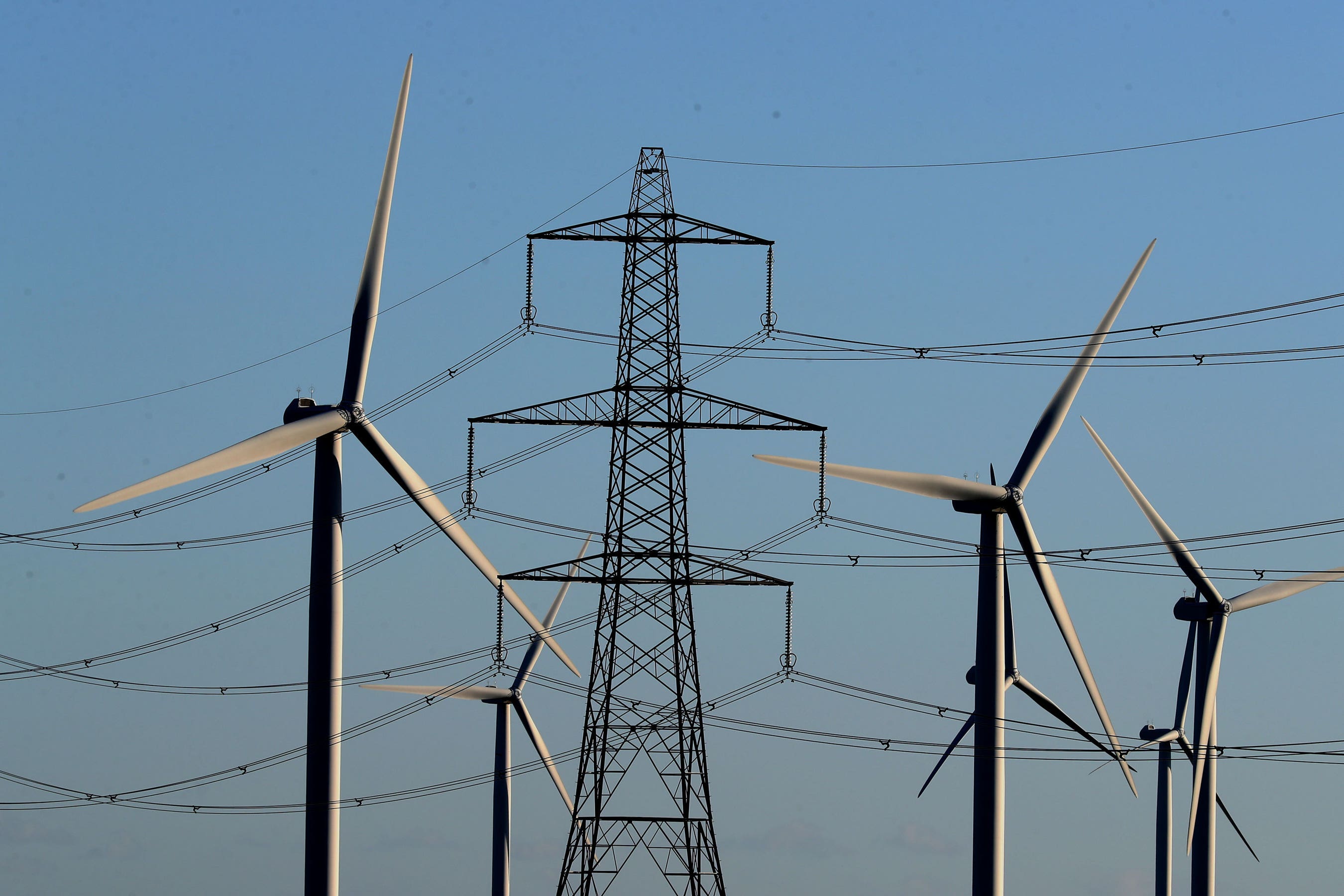UK power system boss: Labour’s clean energy plans challenging but achievable
National Electricity System Operator becomes a public body on Tuesday, and is tasked with advising ministers on plans to decarbonise the power grid.

Your support helps us to tell the story
Our mission is to deliver unbiased, fact-based reporting that holds power to account and exposes the truth.
Whether $5 or $50, every contribution counts.
Support us to deliver journalism without an agenda.

Louise Thomas
Editor
The official tasked with keeping the lights on across the UK has called Labour’s plan of decarbonising the power grid by 2030 “incredibly challenging but achievable” as his organisation moved into public hands on Tuesday.
Fintan Slye, chief executive of the National Energy System Operator (Neso), told the PA news agency the policy will require the energy industry and the Government “to do things very differently, and to do things quicker, but it is nevertheless achievable”.
Neso manages the UK’s electricity supply, balancing supply and demand in real time to avoid blackouts.
Until the end of September it was called the Electricity System Operator (ESO) and was owned by National Grid, which listed on the London Stock Exchange.
The Government recently confirmed plans to buy the organisation, and add an extra letter to its acronym, for £630 million.
The ability to deliver infrastructure quickly on the ground is probably the biggest thing that we're going to have to change
Part of Neso’s new remit is to advise Labour on how to achieve a clean power system by the end of the decade, and a report will land on Energy Secretary Ed Miliband’s desk this autumn.
A primary challenge, Mr Slye said, will be to build things like pylons, power lines and battery storage plants more quickly than before, which in turn will require the planning system to be “more streamlined”.
Meanwhile, officials will need to cut Britain’s vast queue for green energy projects to get connected to the power grid, in which renewable energy projects face a waiting time of up to 14 years or more.
He said: “The ability to deliver infrastructure quickly on the ground is probably the biggest thing that we’re going to have to change.”
He added: “The connections queue, on one hand, gives you confidence that there is the pipeline of projects out there.
This new independent body will help to set a path to decarbonising our networks, giving the industry confidence to invest in a clean energy future and supporting skilled jobs across the country
“The thing that absolutely has to happen though, is agreement on how we reform the queue to bring forward the projects that are needed.
“But with all of the work that’s under way on reform at the moment, we can see a path through that.”
In its first months in government, Labour has set up a new state-owned energy investment company, GB Energy, and lifted a de facto ban on new onshore wind projects in the planning system in England.
Officials also handed out contracts for a new wave of green power projects in early September, including onshore and offshore wind and solar farms, which will generate enough power for 11 million homes, in its annual auction.
Bringing Neso into public hands is also part of the wider plan for the green transition, though it was set in train under the last Conservative government.
Energy Minister Michael Shanks said on Tuesday: “We are on a mission to make Britain a clean energy superpower and today marks a milestone in that journey with the launch of Neso.
“This new independent body will help to set a path to decarbonising our networks, giving the industry confidence to invest in a clean energy future and supporting skilled jobs across the country.”
Mr Slye told PA the move away from National Grid will give him and his colleagues more “clarity of mission and purpose. That is the key thing that is different”.
“We’re not in this to make a profit, we’re not in this to serve some corporate goal.
“The mission of the organisation is to try to chart that path towards a more sustainable future with secure and affordable energy for everyone.”
Subscribe to Independent Premium to bookmark this article
Want to bookmark your favourite articles and stories to read or reference later? Start your Independent Premium subscription today.